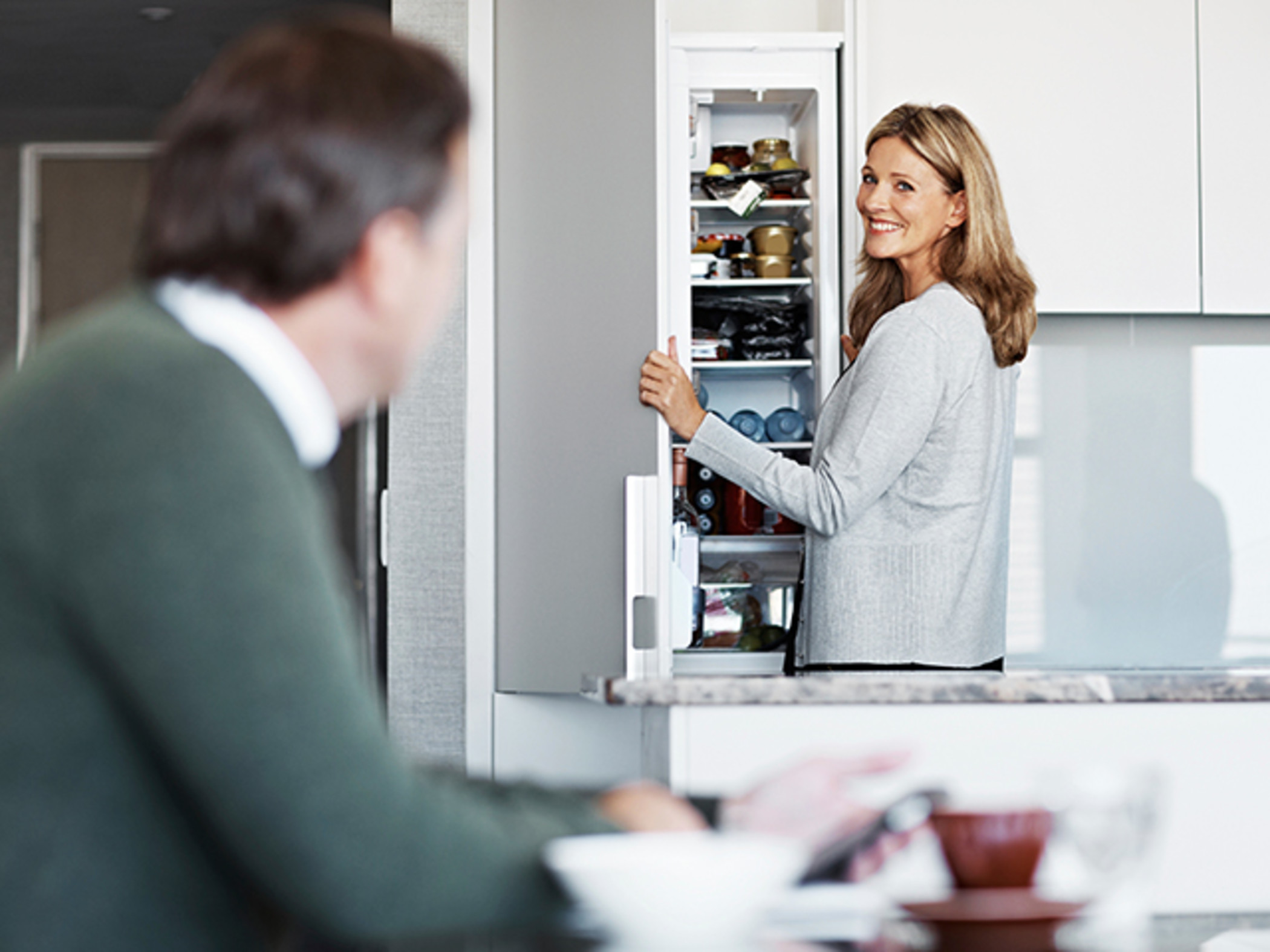Your Refrigerator: Making Space for Energy Efficiency

Refrigerators keep food fresh, but they can take up as much space on your electric bill as they do in your kitchen. Thanks to modern technology, today's refrigerators use far less energy than older models. If your unit is at least 10 years old, consider replacing it with a new, high-efficiency product. It'll help take the heat off your energy budget.
How much will I save?
When shopping for a new refrigerator or freezer, look for the ENERGY STAR® label. ENERGY STAR-certified units use, on average, 35% less energy than older models.
What is the cost difference between an old and new refrigerator and how much will you save? ENERGY STAR estimates that a standard, 19- to 21-cubic-foot refrigerator that's 15 years old or more will cost nearly $80 a year to operate at the current nationwide average electricity rate of 12 cents per kilowatt-hour. A new ENERGY STAR model of the same size would save up to $144 in energy costs over a five-year period.
Cost and savings will vary depending on the size, type and age of your current unit, as well as energy rates. Use the Flip Your Fridge Calculator to find out how much you can save.
Keep the saving going by visiting SWEPCOsolutions.com and get a rebate of up to $100 after upgrading to an Energy Star certified refrigerator.
Save even more
The following actions will help you conserve energy and keep your fridge running at peak performance:
- Set thermostats at the recommended temperature settings for the refrigerator and freezer. You'll save energy while keeping food fresh.
- Keep your refrigerator well-stocked without overfilling it. A refrigerator uses less energy when it's full because there is less air to cool. However, too many items packed together will reduce air circulation.
- Cover liquids and wrap foods before storing them. Uncovered items release moisture, causing the compressor to work harder.
- Clean the coils on the back of the fridge regularly. This will improve airflow and keep it running efficiently.
- Position your refrigerator away from the oven, windows and other sources of heat. Extra heat may cause it to work harder.
Also, try to avoid standing in front of an open fridge perusing your food options. Choose what you want and close the door quickly. With a new fridge and some small changes in your kitchen routine, you can realize some cool savings.
Return to newsletter